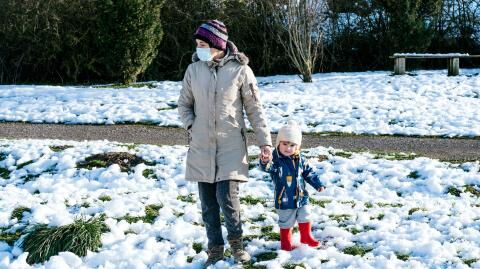Since the beginning of the year, more and more people have decided to get tested to see if it comes back positive for COVID, which explains the explosion of positive cases. Several hundred thousand cases in the last few days. But some of these results could be false positives depending on the location and especially the temperature.
Discover our latest podcast
Temperature-induced false positives
Although this isn't a new phenomenon, it still worries health authorities. While hundreds of thousands of positive COVID cases are recorded every day thanks to tests undertaken by the population, some of these could actually be negative.
Indeed, those done in the street in front of pharmacies are currently facing a problem that has nothing to do with the pandemic: the cold. As it turns out, when tests are carried out in an environment with very low temperatures, such as a cold 2°C, it can lead to false positives and invalidate the data.
So why does it happen?
The tests should be stored in conditions with higher temperature ranges. But the problem sometimes lies in reading the results, which can take several minutes as the winter cold intensifies in walk-in test centres in the middle of the street.
The main problem with these outdoor tests is that if the tests have been frozen, it completely degrades the silica matrix. The sample can be taken at a lower temperature, but then the waiting and reading must be done at room temperature.















